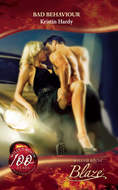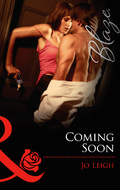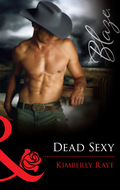Kitap dosya olarak indirilemez ancak uygulamamız üzerinden veya online olarak web sitemizden okunabilir.
Kitabı oku: «Full Circle»
Full Circle
Shannon Hollis

SHANNON HOLLI S
got her first positive review at the age of eight, when her teacher shivered at a story she wrote about a ghost in a graveyard. She wrote her first book at thirteen and sent it off to a literary publisher, who probably took one look at the yellow typing paper and white correction fluid and deduced the age of the author. His remarks were consequently very kind, and gave her the courage to keep writing.
Twenty-five years, seven manuscripts and zillions of rejection letters later, Shannon sold her master’s thesis to Mills & Boon and fulfilled a lifelong dream.
After moving to California from Canada, Shannon started work in the high-tech industry in Silicon Valley. She fell in love with and married her boss, but while they were still newlyweds, the 1989 earthquake destroyed their house. During the construction of a new home, she learned what teamwork and communication really mean!
Shannon is now living her dream of being a writer, and freelance editing keeps her in touch with the fast-paced corporate life that sparks so many ideas. She loves to hear from readers. Send her e-mail at shannonhollis@att.net
Dear Reader,
Welcome to book five of THE WHITE STAR mini-series! I’m thrilled to be part of it, and hope you enjoy the next instalment, which features academic cate Wells and adventurer archaeologist Daniel Burke.
Theirs is a reunion story – an ever-popular plot. But why is it so popular? What is it about the “do-over” that fascinates us so? Is it the chance to revisit an old love and see what has changed – and what has not? Or is it the chance to remember what went wrong – and get it right this time? Because we all know that our first love may not be our true love. But when it is, as cate and Daniel discover, getting it right can cover anything from that first magical kiss…to… well, let’s find out!
Warmly,
Shannon Hollis
MILLS & BOON
Before you start reading, why not sign up?
Thank you for downloading this Mills & Boon book. If you want to hear about exclusive discounts, special offers and competitions, sign up to our email newsletter today!
Or simply visit
Mills & Boon emails are completely free to receive and you can unsubscribe at any time via the link in any email we send you.
For my fellow writers in the San Francisco Area
and Vancouver Island chapters of Romance
Writers of America.
Table of Contents
Cover
Title Page
About the Author
Dedication
Acknowledgements
Chapter One
Chapter Two
Chapter Three
Chapter Four
Chapter Five
Chapter Six
Chapter Seven
Chapter Eight
Chapter Nine
Chapter Ten
Chapter Eleven
Chapter Twelve
Chapter Thirteen
Chapter Fourteen
Chapter Fifteen
Chapter Sixteen
Chapter Seventeen
Chapter Eighteen
Chapter Nineteen
Chapter Twenty
Chapter Twenty One
Copyright
Acknowledgements
Thanks to Carrie Alexander, Kristin Hardy,
Jeanie London and Lori Wilde – true
professionals and a pleasure to work with.
Thanks also to Dr David Andersen,
paleogeologist, who knew exactly
where I could find a plesiosaur.
1
THERE WAS NO SUCH THING as a dead man’s curse.
In the murky twilight of two hundred feet of silty water, Daniel Burke felt like arguing the point as he squinted through his mask, searching for the ribs of the sixteenth-century Basque galleon on the ocean floor.
This recovery expedition had been cursed with everything from bad organization to shoddy safety practices, and the fact that Daniel knew he was only here to give it some legitimacy with the inevitable press orgy didn’t help. He should have said no when the Society for the Preservation of Antiquities had approached him. He should have told them that water wasn’t his element—he belonged in the desert, where layers of sandstone and petrified ash yielded their secrets as reluctantly as a beautiful woman, where caves and hills whispered to him of long-lost civilizations.
But no. The Society had promised him enough money to fund his next trip to Asia Minor, and he, like any dope, had fallen for it.
If the Society’s information was correct, the master of the whaling ship had been the first European to set foot on the shores of the New World. Not Columbus. Not Cabot or Cartier. But a wily Basque captain who had seen the money that could be made out of whale oil from the dangerous waters off the Atlantic coast of Canada. Daniel had no idea how many trips the ship had made before those waters had claimed her, but the success of this expedition and maybe even his own reputation were waiting on the results.
Not to mention the kid’s father.
The reason he was down here on an emergency rescue mission.
Ian MacPherson was a nineteen-year-old archaeology student swabbing decks in exchange for the SPA’s exclusive right from the Canadian government to study the site. The fact that the kid’s father was a high-ranking Canadian cabinet minister was the reason the Society had its permit—and Ian. The dumb-ass had swiped some diving equipment and gone over the side alone this morning, and some fifteen minutes had passed before anyone had noticed. Daniel was going to haul him back aboard by the scruff of his neck and ship him back to his father on the chopper.
As soon as he found him.
“I got not’ing forty feet from the site.” The transmitter in Daniel’s ear clicked as Luc Pinchot reported in from his left.
“Moi non plus,” said the diver on his right.
“Another ten feet,” Daniel said. “He has to have gone in to look at the site. He’ll be here somewhere.”
“The currents ’ere are pretty mean,” Luc said. “’E could have been swep’ to de nort’.”
“One can only hope.” Daniel’s voice was grim. The little weasel was going to wish he’d been washed up on the Newfoundland rocks after Daniel got through with him. The untimely death of the cabinet minister’s son was not the kind of publicity he needed right now.
A freak current cleared the silt for a split second—just long enough for him to see a flash of yellow neoprene in the beam of his lamp. “Straight ahead, twenty feet,” he snapped. “Looks like our boy got himself into trouble.”
The three divers put a little steam on and silt boiled around them as they surrounded Ian the Idiot. Somehow he’d managed to get his right foot caught between two heavy timbers—and was held down like a ferret in a leg trap.
“AND THEN WHAT HAPPENED?”
Jah-Redd Jones, former NBA basketball star, Oscar nominee, and now the latest king of the talk-show hosts, leaned forward and his studio audience took a collective breath in anticipation.
Daniel brushed at his jeans and work boots and gave a modest smile that hid the disgust that hadn’t quite faded, four months later.
“We worked his foot loose and got him up to the surface. But not before we discovered that the galleon had been used for more than just transporting whale oil.” He grinned at the camera, drawing out the suspense, milking the extra second for all it was worth. “I figure the captain was an opportunistic kind of guy—because when an English ship blundered across its path, probably blown off course by a storm, he took the opportunity to relieve it of some of its cargo. Which in this case happened to be cases of Flemish wine and about fifty gold guineas.”
The audience gasped and even Jah-Redd, pro that he was, sat back on the interviewer’s couch with a big goofy grin. “Daniel Burke, man, there’s a reason they call you ‘the real Indiana Jones.’ Folks, can’t you see this as a movie? Huh?”
The studio audience burst into applause, the women in the front row whistling and stamping as if Daniel were an exotic dancer and they wanted to tuck bills in his G-string.
Daniel masked a sigh and held the grin between his teeth. His reputation was what brought in the funding. The fact that it was more of a media creation than reality didn’t make it any less useful. Besides, there was a curvy woman in the front row and he’d bet a hundred bucks she’d be waiting at the street door when he left after his segment. While the audience clapped, he toyed with a few interesting possibilities.
“So tell me,” Jah-Redd said, leaning on his elbows and clasping his hands under his chin, “is it true that the Canadian government gave you the Order of Canada for saving Ian MacPherson’s life?”
“No.” Daniel brought his wandering thoughts back to business. “There was talk, but it’s hard to take a medal for doing what you’d do for any member of your crew.” And saving a kid from his own stupidity isn’t worth a medal. “The divers with me helped get him free, and that’s when we discovered the gold. It was in a strongbox directly under where Ian was trapped. His struggles to get free had disturbed the silt that covered it.”
Jah-Redd appealed to the audience. “Save a person’s life, find a buried treasure, all in a day’s work. How many people would like a job like that?” The audience applauded again.
“I’d like a man like that!” hollered the curvy woman, and Daniel mentally awarded himself a hundred bucks.
“Not married, huh?” Jah-Redd cocked a knowing eyebrow in Daniel’s direction. “Girlfriend, significant other, rows of willing concubines?”
Daniel had a flash of memory—a wide and sensuous mouth, long-lashed eyes, sun-streaked brown hair spread on red sandstone—and covered the mental lapse with a laugh.
“None of the above. Not too many women will tolerate a pot hunter, even when we clean up nice. We spend half the year in remote locations and the other half holed up in dark offices writing research papers about them. Not the best conditions to nurture a relationship, I’m afraid.”
“By pot hunter I take it you don’t mean the green leafy stuff.” The audience laughed along with its host. “How did you get started, er, pot hunting?”
“Did you ever dig holes in the backyard as a kid, hoping to get to Australia?”
Jones nodded. “Now I just take Qantas and let them do all the work.”
Daniel smiled while the audience cracked up. “Well, I just never stopped digging. After my folks were killed when I was six, I went to live with my godparents. I found a Native American artifact in their yard in the burbs when I was twelve, and I knew then I wanted to be an archaeologist. So I went to the University of Chicago, then did postgrad work at the University of New Mexico, specializing in the work of a particular Anasazi potter. From there I assisted in a couple of Central American digs, and that of course led to Argentina and—”
“The Temecula Treasure.”
“Right.”
On the screen above them, a clip began to play from the documentary PBS had done last year on his discovery of a trove of gold artifacts. Audience members who hadn’t seen it yet gasped. He couldn’t blame them. He’d done the same when he’d realized that, instead of finding pottery, he’d stumbled on a grave belonging to a much later civilization—one that believed the dead needed jewelry in the afterlife. Spectacular jewelry.
“Did you get to keep any of it?” Jah-Redd wanted to know.
Daniel shook his head. “It belongs to the Argentinian government, of course. We had six months to study it all before our permit expired and we turned everything over.”
But not before he’d published the second of two groundbreaking papers that had made his name in the academic world and clinched the funding that made his projects possible.
Beautiful funding. Nonacademic funding that took him all over the world and satisfied his itch to get his fingers into every stratum of soil this planet had to offer. That was his real passion. Discovery. It was the media that had latched on to a couple of lucky finds and branded him with this adventurer persona. After the Newsweek article, someone had even sent him a fedora and a leather whip, which had sent the archaeology department’s assistant into gales of laughter and made him the butt of half disgusted, half admiring jokes for months afterward. The other faculty members might gripe in private about his celebrity, but no one complained when it was grant-writing time and the money poured in.
Jah-Redd had returned to the subject of women, prompted, no doubt, by the screaming in the front row. “It’s hard to believe that a man like you—you’re what, twenty-eight? Thirty?—wouldn’t have someone important in his life, though,” his host said with mock gravity. On the screen, still shots of three actresses appeared. “Indiana Jones loved three women over the years of the movies. Which one would be most like your ideal? The tomboy adventurer with the broken heart, the blond bombshell or the seductress?”
Daniel laughed while the audience waited, the expectant silence punctuated by blatant come-ons and even a boob flash—mercifully unseen by the studio cameras—from the front row.
Again, her face drifted through his mind’s eye, laughing down at him from some impossible rock outcropping while she trusted her life to bits of metal jammed in where metal was never meant to go.
“I’d have to say my ideal woman would have the brains and adventurous spirit of Marion Ravenwood, the loyalty of Short Round, and the sexual curiosity of Dr. Elsa Schneider. But of course, a woman like that already exists—I believe you snapped her up for yourself, Jah-Redd.”
The audience laughed and applauded, and while Jones announced they were cutting to commercial, Daniel sat motionless while memory attacked him.
Because a woman like that did exist.
And he’d chased her out of his life long ago.
2
“SEXUAL CURIOSITY, my aunt Fanny!”
Cate Wells snapped off the TV with a vicious stab of her thumb and threw the remote—not against the wall, because that would damage it—but into the corner of the couch, where it bounced off a pillow and onto the floor.
Fuming, she rammed her feet into slippers shaped like the man-eating bunny from Monty Python and the Holy Grail and stalked into her bedroom. The nerve of that man! He was everywhere she looked these days—on The Jah-Redd Jones Show, in the papers, even in the Vandenberg University bookstore, where the obnoxious book he was so enthusiastically promoting on talk shows was stacked ten deep on a front-table display.
As if anybody but a gullible public could mistake him for a serious scholar and field researcher when the wretched thing was called Lost Treasures of the World: Adventures in Archaeology.
How utterly lame.
As lame as those women in the studio audience, screaming and drooling like a lot of hormone-ridden teenagers. Most of them were old enough to be his mother. Granted, the cheekbones and the iron planes of his jaw hadn’t changed in the eight years since she’d seen him last. And the obliging close-ups of the camera had shown eyes that were as dark and shuttered as they’d ever been. But the boy she’d fallen for on the short southern nights of the dig in Mexico where they’d worked together for one enchanted summer was gone forever. That boy had shared her love of discovery—whether it was the secrets hidden by layers of soil and rock, or the secrets hidden by diffidence and sexual uncertainty.
Sexual curiosity, indeed!
Thank heavens she’d never told a soul about their aborted relationship—not even her closest girlfriends or her parents in San Diego. He had been a secret she was prepared to take to her grave. What a pity he hadn’t been quite so discreet.
Cate pulled the five-hundred-thread-count Egyptian cotton sheet up to her chin and willed herself to go to sleep. She had appointments in the morning and a paper to proof that was guaranteed to knock the socks off the tenure committee, and she needed a clear head.
But the sight of Daniel, older but just as charismatic and sexy in his jeans and boots, disturbed her dreams as thoroughly as he’d disturbed her peace of mind—and, it must be confessed, her body. Her brain, usually so dependable, decided to take her on a trip down memory lane. The dig site, baking under the relentless Mexican sun, where archaeology students from universities across the country had been cycled in and out for brute labor disguised as summer credit. A moon the size of a gold doubloon lighting Daniel’s face as he’d leaned in, as dirty and sweaty as she was, for that first kiss. That last night, when they’d slipped off to find a cool cave to lay their sleeping bags in, where she’d panicked at the very last moment and run, humiliating herself and no doubt earning his undying contempt.
But oh, those days between the first kiss and the cave…those days had been filled with her first experience of intense sexual longing. He had been all she’d been able to think about—her body becoming a kind of tuning fork with a single frequency: Daniel Burke. Lying here in the dark of her bedroom, her unsatisfied lust triggered dreams of him. A stealthy hand cupping her derriere as the group of students stood listening to a field lecture. A hard thigh pressing hers as they ate together in camp. Kisses that practically blew the top off her head as they abandoned the others and sneaked off behind rock outcroppings to explore each other in private.
At four in the morning, Cate woke to find herself wet and aching, staring into the dark.
She’d followed his career—it was pretty hard to avoid it, with Newsweek and the American Journal of Archaeology doing their very best to give his exploits legitimacy. It was only at moments like this, in the deepest dark, when her defenses were down and she was unable to keep the lid of professional disdain on her natural honesty, that she could admit how much it had hurt when no call or letter had ever come. It wasn’t as though she was hard to find. All the faculty at Vandenberg were listed on the Web site, and she was in the Queens phone directory. When she’d made associate professor at Columbia and then taken the position at Vandenberg shortly afterward, the papers had made a nice little fuss about nabbing such a coveted job out from under hundreds of candidates when she was so young.
No, it was clear that when Daniel had told Jah-Redd about wanting someone who was loyal and who had sexual curiosity, he had been making a dig at her.
Bastard. She would absolutely not waste another thought on him. Her body could just calm down. Instead of masturbating and giving him control of her body again, she would think about her paper. That would do the trick.
She would think about her career plan, which was laid out in nice, achievable steps where she did the right things and talked with the right people, and success was a natural outgrowth of a good strategy. Columbia, to start. Then the move to Vandenberg, a private university that had its quirks but whose reputation was stellar. Tenure by the age of thirty. After that, perhaps a book of her own. A serious, scholarly work, unlike that of some people she could name.
Success. The right career path, a book, a reputation people would give their eyeteeth for. That was what was important here, not memories of the past, no matter how disturbing.
Despite big helpings of positive visualization, it was only thanks to an extra-large latte (no whip) that she was able to get herself to the gym, then to the subway and onto the campus a couple of hours later. The walk across the quad to the Horn Building normally lifted her spirits, especially on an early summer day like this, when the sun warmed the granite dome of the Memorial Library to terra-cotta and students sat on the amphitheater-like plaza steps like flocks of birds sunning themselves. Darn Daniel anyway. He’d managed to take even that small pleasure from her.
Which wasn’t the most mature and logical attitude to take, but she wasn’t feeling mature or logical this morning, thank you very much.
In her tiny but carefully decorated office, Cate dumped the day’s mail on her desk, put her purse in the bottom left drawer, and extracted the paper with its sticky tabs and red corrections from her briefcase. A glance at the calendar told her she had thirty minutes before her first appointment, a woman named Morgan Shaw who wanted to talk about an artifact but who would not tell Anne Walters, the department administrative assistant, a thing more.
Cate gave a mental shrug. Every now and again she got one of these—someone who dug up an arrowhead and figured they’d discovered a Native American burial site, or someone who found something in Uncle Lester’s attic that had to be an ancient treasure. She’d become quite skilled at letting people down gently.
She turned her attention to the mail. Circulars, notices, memorandums from the department head, who knew better than to kill trees by sending memos in hard copy, but insisted on doing so to make himself feel he’d accomplished something. Cate sighed and picked up a glossy brochure giving her final notice of a conference in Big Sur, California.
Then a name caught her eye.
Keynote speaker and featured presenter: Daniel Burke, “the real Indiana Jones.” Dr. Burke will present the keynote speech at Saturday’s luncheon and will also present his latest paper, Silent Voices: Tracing the Trade Routes through Pre-Columbian Pottery, on Friday night. After the presentation, Dr. Burke will sign his new book, an event that will be open to the public.
“Be still my heart.” Bad enough his face invaded her living room. Worse that it had inhabited her dreams. But to barge uninvited into her office, her citadel where only she was in control—that was just too much.
Cate aimed the brochure at the trash can and fired it with a flick of her wrist, where it landed with a swish amid a lot of other things that she didn’t need and no longer cared about.
The digital clock on her desk flipped from 9:29 to 9:30 and Anne Walters leaned in the door. “Dr. Wells? Ms. Shaw is here for her appointment.”
Cate turned her back on the trash can and its obnoxious contents. “Thanks, Anne. Send her in.”
“I’m going to run out for another coffee. Want one?”
Anne knew the location of every espresso bar in a ten-block radius. “You are a goddess. Extra-large, no whip.”
“Back in fifteen.”
Morgan Shaw, tall, blond and professional, came in with a confident stride and a hand outstretched in greeting. When Cate shook it, she got the impression of self-assurance mixed with a whole lot of anticipation. Whatever the woman had to show her, it meant a lot to her.
Ms. Shaw shook back her mane of hair and smiled. “Dr. Wells, thank you for seeing me.”
Cate waved her into the guest chair in front of her desk and settled herself in her own. “Did Anne offer you something to drink?”
“Yes, she did, thanks.”
“No trouble finding us?”
“Not at all. I got very good directions from my sister, Cassandra. I’d like to thank you personally for rescuing her a few months ago.”
Cate grinned with delight. Earlier in the year she had escaped the city and had been four-wheeling through the woods upstate, on her way back from her therapy cliff—the one she climbed when she really needed to clear her head and find her center again. She’d offered a lift to a couple of stranded hikers, and had stayed in touch ever since. “Cass is your sister? Then I’m doubly pleased to meet you. I understand you have an artifact that you wanted to show me,” she prompted. “How did you come by it?”
Morgan leaned over and pulled her leather tote into her lap. “I have an antique shop in Fairfield, Connecticut. I found this in a late-Victorian dresser that was part of the stock I bought along with the shop.” She opened a cardboard container much like the ones the post office used, and extracted a wooden box. “I was hoping you could tell me a little about it.”
Cate pulled the box closer. This was no relic from Uncle Lester’s attic. Weighing no more than her low-profile laptop, the box was so ornately carved that there was no room for a single extra figure on its surface. She tried to separate the images to discover some meaning or clue as to its provenance, but the figures merged into one another, almost seeming to lose themselves before she could fix them in place. There were flowers, a sun and a hawk, what looked like a tree and the wavy lines that in most cultures denoted water. There were animals—a hippo, a lion—and plants. A lotus. Reeds, maybe. There were musical instruments—a lyre, or was it a harp? A flute—or was it a reed next to a crocodile? And among the images were symbols, regular and uniform enough to indicate written language.
“This is amazing.” When Morgan nodded, Cate realized she’d spoken aloud.
“I can’t even tell what kind of wood it is, much less figure out what the carvings mean,” Morgan said. “I thought maybe cherry? Walnut? Not ebony, because it’s kind of reddish-brown.”
“That much I do recognize.” Cate turned the box over to examine its underside. She caught a faint whiff of some kind of spice. “If I’m not mistaken, it’s bubinga, an extremely hard and durable wood from Africa. The person who carved it was obviously a very skilled craftsman.”
“Can you tell how old it is?”
“Other than ‘old’?” Cate, with the box at eye level, smiled over the top of it at her visitor. “I can’t be sure, but at a guess I’d say more than two thousand years. From some of the cuts in the curved lines, here, I’d say they used a hand awl, which might even put it at three thousand years.”
Daniel would know.
Yes, but the likelihood of Daniel seeing this box was nil, wasn’t it?
She lowered the box and ran her fingers along a row of what looked like monkey heads. Or maybe they were irises. The more she looked, the harder it was to tell. “How does it open?”
Morgan lifted her shoulders in a shrug. “I was hoping you could tell me. There’s a compartment inside, I know that much, because I ran it through the security check at the train station on the way here and peeked at the monitor. But I have no idea if it contains anything, or how it’s opened.”
Lost Treasures of the World, whispered that treacherous voice in her head. Daniel might have some information.
Cate stifled the voice and glanced at Morgan. “Do you mind if I take some photographs? I could show the pictures to one or two of my colleagues and they might be able to identify the culture that produced these carvings.”
Morgan shook her head. “Not at all.”
Cate kept her field camera in the office just for moments like these. She put in a fresh roll of high-resolution film and tore the top sheet off her desk blotter to make a clean white surface. A ruler next to the box gave perspective. Then she carefully photographed each side in close-up, at midrange and from a couple of feet away, just as she’d been taught all those years ago in Mexico.
“We can learn as much from the matrix in which a piece of pottery is embedded as we can from the potsherd itself.” The voice of their supervising prof, Dr. Andersen, sounded in her memory. “Your photographs should include this information. It could be important.”
Cate was surprised she remembered that much—the day they’d excavated the midden and found the fragments of pottery was the day Daniel Burke had arrived. Cate’s memory of anything but him after that point had been burned away by the force of their attraction. There was a thesis for you—The Passionate Flame: Biological Urges and the Death of Brain Cells.
“—long it might take?”
Cate blinked and resisted the urge to roll her eyes at herself. Damn that Daniel Burke anyway. Now she looked like an airhead.
“I’m sorry, what was that?” She put the camera back in its case and ran a slow hand over the surface of the box. She was not normally given to touching things. Her colleague Julia was always doing that, though—rubbing fabric between her fingers, stroking passing dogs in Central Park. Now Cate felt the same urge to touch this box. Something about the carvings invited you to follow them with your fingers, to touch them as though they were braille and had a message for you.
“I was just wondering how long it might take to get an opinion from your colleague,” Morgan said, doing a good job of disguising her eagerness. But Cate knew that feeling—that excitement when you were this close to finding an answer that had eluded you. Some said that curiosity killed the cat. But curiosity was an archaeologist’s best friend.
“I’m not sure,” Cate hedged. Out of the corner of her eye, she saw the glossy brochure advertising the conference, facedown in the trash.
Daniel might help.
No. No way. Not to satisfy her own curiosity, not to help out Ms. Morgan Shaw, would she get on a plane and fly across the country to see Daniel Burke strutting around Big Sur as though he were God’s gift to archaeology and women.
“A couple of weeks? A month?” Morgan persisted.
What are you afraid of?
Nothing. The thought was ludicrous.
So he had a rep for flamboyance. So he’d been on Jah-Redd last night. The fact remained that he was an authority on ancient symbology, and if anyone would know about this box, it would be him. Besides, she hadn’t taken in a conference since that one in D.C. last year. And she hadn’t seen the ocean since the Jurassic period—or at least it seemed that way.
Ücretsiz ön izlemeyi tamamladınız.








